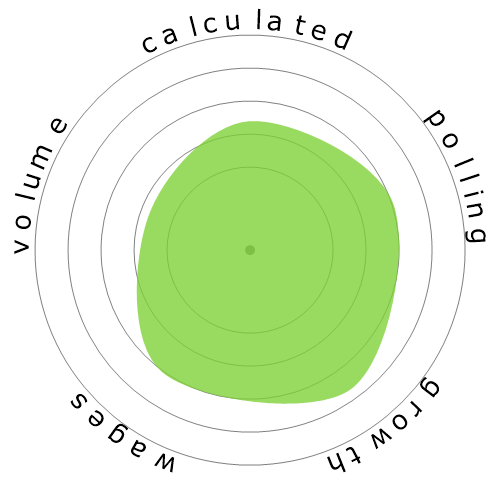Chemists
Where Would You Like to Go Next?
Or, Explore This Profession in Greater Detail...


What does this snowflake show?
What's this?
We rate jobs using four factors. These are:
- Chance of being automated
- Job growth
- Wages
- Volume of available positions
These are some key things to think about when job hunting.
People also viewed
Calculated automation risk
Moderate Risk (41-60%): Occupations with a moderate risk of automation usually involve routine tasks but still require some human judgment and interaction.
More information on what this score is, and how it is calculated is available here.
User poll
Our visitors have voted there's a low chance this occupation will be automated. This assessment is further supported by the calculated automation risk level, which estimates 46% chance of automation.
What do you think the risk of automation is?
What is the likelihood that Chemists will be replaced by robots or artificial intelligence within the next 20 years?
Sentiment
The following graph is shown where there are enough votes to produce meaningful data. It displays user poll results over time, providing a clear indication of sentiment trends.
Sentiment over time (yearly)
Growth
The number of 'Chemists' job openings is expected to rise 7.6% by 2033
Total employment, and estimated job openings
Updated projections are due 09-2025.
Wages
In 2023, the median annual wage for 'Chemists' was $84,680, or $41 per hour
'Chemists' were paid 76.2% higher than the national median wage, which stood at $48,060
Wages over time
Volume
As of 2023 there were 83,530 people employed as 'Chemists' within the United States.
This represents around 0.06% of the employed workforce across the country
Put another way, around 1 in 1 thousand people are employed as 'Chemists'.
Job description
Conduct qualitative and quantitative chemical analyses or experiments in laboratories for quality or process control or to develop new products or knowledge.
SOC Code: 19-2031.00
Comments (13)
Aspects of Inorganic Chemistry, Physical Organic Chemistry, and Polymers (as a part of Organic Chemistry) are very relevant to developing new materials with desirable properties. In fact, the Bureau of Labor Statistics (BLS) in the U.S.A. categorizes Chemists and Material Scientists as one and the same profile.
Job opportunities for Material Scientists do allow Chemists to be considered as Material Scientists when the Chemist has experience and multiple credits in Physical Chemistry, Polymers, and/or Inorganic Chemistry. Many Chemists follow this professional direction. In fact, some departments are even named 'Materials Chemistry'.
This fact indicates that one of these professions has an incorrect percentage representation on this website. Either Materials Science should have 51% (or a percentage much closer to Chemistry) on this website, or Chemistry should have 22% (similar to Materials Science). The large discrepancy simply reflects a mistaken view on the nature of their work.
Chemistry, by default, incorporates aspects of Physical Chemistry applicable to materials. It is suggested to reassess the activities of chemists to correct the percentage that has been flawed in a previous assessment.
There are autotitrators and autosamplers for many different equipment (Dissolution systems, HPLC, GC, UPLC, Mass spec and so on). These technologies have been around for decades yet analysts are still required to prepare samples, analyze them and then interpret and report data .
The two tenants which make a job susceptible to replacent by automation are Predictability and complexity. Some chemical analysis (more specifically wet chemistry, non-instrumental techniques) is more complex than what current automation systems can handle (i.e. chemical digestion of a sample, followed by extraction with a solvent, evaporation of the solvent) also sample quality is unpredictable (hence why QC labs exist, if every manufacturing method was flawless there would be no need for QC/QA).
Reply to comment